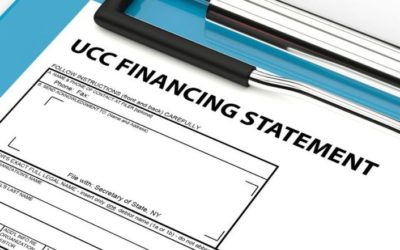Unlike a traditional consolidation, a reverse consolidation, also know as a reverse MCA, pays the debt ahead of schedule, but not all off at once. Typically, a reverse consolidation funder will pay their client’s debt a week at a time. You, in turn, pay your funder a lower amount weekly than they are paying on your debt. This method allow the reverse consolidation funder to extend the term, making your payments more affordable. It only pays your debt up a week at a time because it’s designed for those who do not qualify for a tradition consolidation.
These type of consolidations are very effective at giving payment relief. In fact, by consolidating in this fashion, the reverse funder is able to lower client payments as much as 40%-60%.
Reverse consolidations are for high-interest debt such as merchant cash advances (MCA’s), business credit cards and unsecured business loans.
Pros and Cons of a Reverse Consolidation
PROS:
A reverse consolidation is an avenue that helps overwhelmed borrowers afford their payments. But that’s just the beginning of the benefits.
Other benefits include:
- It cost less than bankruptcy.
- Less time consuming and stressful than bankruptcy.
- Approval is less restrictive compared to a consolidation or SBA loan.
- Weekly payments instead of daily payments.
Really, it is very effective at achieving it’s designed purpose – giving relief for high-interest, high-risk debts.
CONS:
The drawbacks to a reverse consolidation include:
- Fees amount to more than the interest associated with a traditional consolidation.
- Shorter term options compared to an SBA loan.
- More frequent payments than with an SBA or consolidation loan.

Avoid Taking On More Cash Advances Loans
An equally important key to turning around a bad financial situation is avoiding additional high-cost funding. Looking for cost saving options as opposed to additional funding will help your financial stability more in the long run. You can use the cost savings to put away money for unexpected business expenses. This way, when an unexpected expense arises, you will have the money to deal with it and not need to borrow money.
Once you have paid off your debts, continue to practice cost saving ideas and self funding of expected and unexpected business expenses. This will help your bottom line drastically. It will also help you become eligible for traditional funding if ever needed for a justifiable reason such as expansion.

When to Consider Applying For a Reverse MCA?
It becomes pretty obvious to a business owner/owners when they are in need of relief from MCA debts. Usually, at this point a business is operating in the red. As the business owner, you are most likely not making a personal income from your business and you may be having to slow pay vendors or use saved money to cover business operations, expenses and payroll. Out of desperation, you may be considering bankruptcy or applying for another high-interest loan to stop the bleeding. This is a very good description of the type of scenario a reverse consolidation is for.
Bankruptcy For Business Debt – Options and Filing
The need to file bankruptcy for business debt may seem unavoidable. However, a business filing bankruptcy is not always the best choice compared to other options. Options that can help turn your business around without the headache that comes with bankruptcy. Before...
Business Funders | List of Merchant Cash Advance Lenders
See a complete list of business funders that make business funding loans to businesses large and small. If you have found yourself overstacked with merchant loans, you can get a quote on restructuring your existing mca loans. A legal restructured term can dramatically...
Business Debt Settlement – Eliminate MCA Debt Without an Attorney
MCA Relief | Get Relief From Merchant Loans
Debt to income is a huge factor in determining a business's financial health. Daily payments become burdensome to businesses experiencing a downturn in revenue. Payments continue to be drafted even when the cash-flow drops. MCA relief is very real need for businesses...
MCA Restructuring | Lower Merchant Loan Payments
Debt to income is a huge factor in determining a business's financial health. Daily payments become burdensome to businesses experiencing a downturn in revenue. Payments continue to be drafted even when the cash-flow drops. MCA restructuring is very real need for...
Business Debt Help Options | Learn More
There is no shortage of options and programs designed to give relief from business debt. So, what are some of the main business debt help options, and how do you decide which is most fitting for your situation? There first step is to know what options are available....
What is a UCC-1 Lien and How to Reverse it
A UCC filing is what a creditor files in attempt to place a lien on the collateral of a debtor in default. These type of filings are filed with the Secretary of State and for the purpose of expressing interest in your collateral assets. UCC is an acronymn that stands...
What is a Confession of Judgment?
A confession of judgment is clause often hidden within a contract for a business loan or commercial lease. COJ clauses are common in alternative funding contracts such as merchant cash advances. By signing a confession of Judgment, you are signing away your right to...
Business Debt Negotiation | When to Consider
Being overextended with debt is stressful. It is on your mind from the moment you wake up till the moment you fall asleep. It's an even more miserable feeling especially when you aren't sure how to resolve it or you think bankruptcy is your only option. Business debt...
Business Bankruptcy Alternatives
There are times when filing for bankruptcy is unavoidable. But, more times than not, there are alternative options more suitable for dealing with debt. Options that can help turn your business around without the headache that comes with bankruptcy. Some of these...











